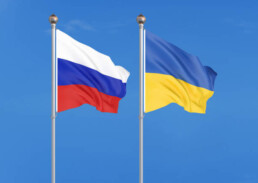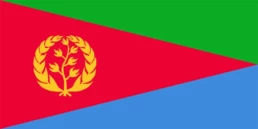China's Expanding Arms Dealing in Africa: Yet another threat to the Peace and Security of the Continent
China's Expanding Arms Dealing in Africa: Yet another threat to the Peace and security of the Continent
By Staff Writer
China’s increasing involvement in arms dealing in Africa has raised concerns about the potential implications for the continent’s peace and security. As China expands its economic and political influence in Africa, its arms sales to various African nations have also witnessed a rapid surge, and this trend demands a closer analysis of its impact on the peace and security in the region.
China’s strategic decision to expand its arms trade with African nations has been primarily driven by economic and geopolitical objectives. African countries often find Chinese arms deals attractive due to lower costs compared to Western alternatives and a more lenient approach to human rights concerns. However, it is important to recognize that this expansion comes at a cost that undermines the continent’s peace and security.
China’s arms sales to African nations pose a direct threat to the peace and security of the continent. The proliferation of weapons perpetuates conflict and exacerbates existing tensions between states. Additionally, the influx of cheap Chinese weapons often ends up in the hands of non-state armed groups, further destabilizing regions and fueling civil wars and insurgencies.
Furthermore, China’s arms dealing expansion in Africa not only contributes to conflicts but also obstructs efforts made by international organizations to mediate and resolve these conflicts. African Union peacekeeping missions, supported by international partners, have been working tirelessly to pacify war-torn regions. However, the availability of Chinese weapons often bolsters the capabilities of belligerent parties, thereby prolonging conflicts and jeopardizing peacekeeping efforts.
Moreover, China’s arms trade in Africa and its potential impact on peace and security extend beyond the direct provision of weapons. The rapid expansion of Chinese arms sales in the continent inadvertently enables the emergence of proxy wars, wherein rival factions supported by different external actors engage in conflict on African soil.
This intensification of proxy wars not only endangers the lives of countless Africans but also exacerbates regional tensions, potentially leading to a wider regional instability.
China’s assertive expansion of arms dealing in Africa is not without self-interest. Aside from economic gains, China also seeks access to strategic resources and political influence across the continent. By providing weapons and military equipment, China cultivates political alliances with African countries, often undermining good governance and human rights considerations. This reinforces the notion that China’s arms deals in Africa serve not only as a means to secure economic interests but also as a tool to enhance its geopolitical influence on the continent.
China’s thriving arms dealing expansion in Africa holds significant implications for the peace and security of the continent. The proliferation of cheap Chinese weapons exacerbates conflicts, empowers non-state actors, hampers peacekeeping operations, and fuels proxy wars. Moreover, this unregulated expansion by China undermines efforts to achieve lasting peace and stability in Africa.
To address this issue, African nations need to engage in stronger regional cooperation, bolster arms control frameworks, and actively seek alternative sources of security cooperation beyond Chinese arms deals. Additionally, the international community, including regional organizations and major powers, must hold China accountable for its actions and work towards establishing a more comprehensive and regulated arms trade regime that prioritizes promoting peace and security over individual state interests.
By acknowledging the detrimental impact of China’s arms dealing expansion in Africa and taking proactive steps, Africa can ensure a secure and stable future for its people, free from external interventions that intensify conflicts and hinder socio-economic development.
Share
The Wheat Politics and War - How should Africa navigate?
The Wheat Politics and War - How should Africa navigate?
By Staff Writer

The wheat politics of Russia and Ukraine have had a significant impact on Africa, both positive and negative. These two countries are major exporters of wheat, and their policies, production levels, and export dynamics have influenced food security, domestic markets, and agricultural development in various African nations. However, this influence has not always yielded beneficial outcomes, and addressing these challenges requires exploring alternative strategies and potential solutions.
Russia and Ukraine are known as the breadbaskets of Europe, producing vast quantities of wheat every year. Their agricultural policies and export competitiveness significantly affect global wheat prices, including those in Africa. In recent years, increased competition and improved efficiency in the wheat sector of these countries have resulted in expanded production and lowered prices, benefiting African consumers by making wheat more accessible and affordable. Reduced prices have played a vital role in enhancing food security in Africa, where wheat is a staple food and a primary source of nutrition.
However, the impact of Russia and Ukraine’s wheat politics on Africa is not solely positive. The fluctuation of wheat prices on the global market has created both opportunities and challenges for African wheat producers. When international wheat prices are low, domestic wheat farmers in Africa struggle to compete and may face difficulties in selling their produce. As a result, this discourages domestic cultivation and negatively affects the long-term growth and self-sufficiency of African agricultural sectors. Therefore, while African consumers benefit from lower prices, the livelihoods of local farmers are at stake.
Furthermore, dependence on wheat imports from Russia and Ukraine poses a risk to African food security. Due to the dominance of these countries in the global wheat market, any disruption in their export capacity, whether caused by geopolitical tensions, trade restrictions, or climate related challenges, could have severe consequences for African countries heavily reliant on imported wheat.
This vulnerability was clearly demonstrated in 2010 when a severe drought in Russia led to a substantial decrease in its wheat production and subsequent export restrictions. As a result, African nations faced skyrocketing wheat prices and scarcity, exacerbating food insecurity in the region.
Addressing the challenges posed by the wheat politics of Russia and Ukraine requires exploring alternative strategies and potential solutions. African nations can invest in improving domestic wheat production capabilities through technological advancements, enhanced farming practices, and infrastructural development. By increasing productivity and reducing dependence on imports, African countries can mitigate the risks associated with global price fluctuations and export disruptions.
Furthermore, regional cooperation among African nations can play a crucial role in mitigating food security risks. By fostering intra-African trade in wheat and other agricultural commodities, countries can diversify their import sources, reducing reliance on any single country or region. Moreover, collective action can strengthen the bargaining power of African nations in global markets, enabling them to negotiate better terms of trade.
Lastly, increased investment in research and development is crucial for boosting agricultural productivity in Africa. This involves developing drought-resistant wheat varieties better suited to the continent’s climate and investing in irrigation infrastructure to mitigate the risks posed by irregular rainfall patterns. By embracing innovative agricultural technologies and sustainable practices, African countries can enhance their agricultural capacities and reduce dependence on imported wheat.
It is certain that the wheat politics of Russia and Ukraine have a profound impact on Africa and while lower global wheat prices benefit African consumers, they pose challenges for domestic farmers and food security. Addressing these challenges requires investment in domestic wheat production, regional cooperation, and research and development. By enhancing African agricultural capabilities and reducing dependency on imported wheat, African nations can mitigate the risks associated with global price fluctuations and export disruptions, ultimately improving food security and fostering sustainable agricultural development.
Share
President Afewerki's Diplomatic Moves and Eritrea's Backing of China and Russia
President Afewerki's Diplomatic Moves and Eritrea's Backing of China and Russia
By Staff Writer

In recent years, Eritrea, a small East African nation known for its long-standing isolation, has undergone a significant shift in its diplomatic relations. President Isaias Afewerki has been instrumental in steering Eritrea towards closer partnerships with global powers like China and Russia. This essay aims to explore the recent diplomatic overtures made by President Afewerki and weigh Eritrea’s motivations for leaping closer to these two global powers.
Diplomatic Shift:
The President Afewerki’s diplomatic moves signify a departure from Eritrea’s previously isolated stance on the world stage. Historically, Eritrea’s relations with the international community were strained due to its involvement in regional conflicts and its skepticism of foreign intervention. However, in recent years, President Afewerki has actively sought to cultivate new diplomatic ties, particularly with China and Russia.
Backlash and the Ends Justifying the Means:
This diplomatic shift has faced criticism from various international actors who question the motives and consequences of Eritrea’s alignment with China and Russia. Critics argue that Eritrea’s newfound alliances are merely an attempt to gain more support against Western influence, rather than advancing the nation’s socioeconomic development. However, one must consider Eritrea’s unique historical context and the complex regional dynamics it faces before making a determination on the potential benefits and drawbacks.
Motivations behind the Partnerships:
Eritrea’s backing of China and Russia can be attributed to several underlying factors. Firstly, China and Russia’s increasing global influence and economic power makes them attractive partners for a nation seeking economic growth and infrastructure development. China has become Africa’s largest trading partner, and Russian investments in the continent have also been on the rise.
By aligning with these countries, Eritrea hopes to tap into their resources to stimulate its own development.
Additionally, Eritrea’s diplomatic moves can be understood within a regional context. The country faces several challenges, including regional conflicts, refugee crises, and terrorism threats. By aligning itself with China and Russia, Eritrea aims to enhance its security and ensure stability in the region. With China’s growing presence in Africa and Russia’s increased involvement in Middle Eastern affairs, Eritrea sees an opportunity to strengthen its security capabilities through these alliances.
Implications for Eritrea’s Future:
Eritrea’s partnerships with China and Russia have the potential to bring about positive and negative consequences. On the one hand, increased investment from China could boost Eritrea’s infrastructure and spur economic growth. This could lead to job creation, poverty reduction, and improved living standards for the Eritrean people. Similarly, Russia’s involvement may help address regional security concerns, leading to stability and the possibility of increased regional cooperation.
There are, however, potential drawbacks as well. Eritrea’s reliance on China and Russia could result in overdependence, jeopardizing its sovereignty and autonomy. Moreover, concerns have been raised about human rights abuses and environmental degradation associated with some Chinese investments in Africa, and Eritrea needs to carefully navigate these issues to protect its long-term interests.
President Isaias Afewerki’s diplomatic moves to align Eritrea with China and Russia mark a significant shift in the country’s foreign policy. These partnerships are motivated by a desire for economic growth, infrastructure development, and regional security. While the alliances offer unique opportunities for Eritrea, careful consideration must be given to ensure Eritrea’s long-term interests are protected and that the nation avoids overdependence on these global powers. By strategically managing these relationships, Eritrea can potentially leverage the resources and expertise of China and Russia to overcome its development challenges and foster a more prosperous and stable future.
Share
Wagner (PMC) and its Operations in Africa
Wagner (PMC) and its Operations in Africa
By Staff Writer

The killing of Yevgeny Prigozhin, a Russian oligarch and the alleged owner of the private military company Wagner, has sent shockwaves throughout the international community. The incident, which occurred in Africa, has raised concerns about the expansion of Wagner’s influence in the continent and its potential implications for global security. As the dust settles, it is crucial to assess the future of Wagner in Africa and consider the consequences it may have.
Wagner, a paramilitary organization composed of Russian mercenaries, has gained notoriety for its involvement in conflicts in Ukraine and Syria. Its operations are believed to be supported by the Russian government, which denies any direct links but acknowledges that Russian citizens may join the group voluntarily. The killing of Prigozhin, who was reportedly known as “Putin’s chef” due to his close ties to the Russian president, raises questions about the extent to which the Russian government may be involved in Wagner’s activities.
Africa has become an area of interest for Wagner’s expansionist ambitions in recent years. The company has reportedly conducted military operations in Sudan, Libya, and the Central African Republic (CAR). In Sudan, many have alleged that Wagner played a significant role in supporting the former regime of President Omar al-Bashir, further exacerbating the ongoing political crisis in the country. In Libya and the CAR, Wagner’s presence has fueled conflict, hampering the prospects for peace and stability in these fragile nations.
The killing of Prigozhin adds a new layer of complexity to the situation. While the motive behind his assassination remains unclear, some speculate that it could be a result of internal power struggles within the ranks of Wagner and Wagner’s recent failed mutiny. If this is the case, it raises concerns about the stability and accountability of the organization.
The absence of clear leadership could lead to increased volatility and unpredictability in Wagner’s actions.
Moreover, the killing of Prigozhin has broader implications for the future trajectory of Wagner in Africa. It is unclear how his death will impact the group’s operations and the level of support it receives from the Russian government. If the Russian state perceives Wagner as a liability following this incident, it may choose to distance itself from the group, making it harder for Wagner to sustain its activities in Africa. On the other hand, if the Russian government perceives Wagner’s actions as aligned with its interests, it may continue to support and enable the group’s expansion in the continent.
The presence of Wagner in Africa has raised concerns about the potential consequences for regional stability and global security. The group’s activities have been characterized by a lack of accountability, disregard for human rights, and a tendency to exacerbate existing conflicts. These dynamics could lead to further destabilization, hindering efforts for peacebuilding and development in Africa.
To mitigate these risks, it is imperative for the international community to closely monitor and address Wagner’s presence in the continent. Diplomatic efforts should be aimed at discouraging African governments from engaging the services of private military companies like Wagner, focusing instead on strengthening their security forces and institutions. Additionally, international actors should continue to advocate for transparency, accountability, and respect for human rights in conflict-affected regions where Wagner operates.
In conclusion, the killing of Prigozhin and the future of Wagner in Africa require scrutiny and proactive engagement from the international community. The incident highlights the potential challenges posed by private military companies and their activities in fragile regions. It also underscores the need for increased cooperation and coordination among states to prevent the proliferation of such groups and reduce the negative impact on global security. With thoughtful and robust action, it is possible to address the concerns raised by Wagner’s presence in Africa, ensuring a more peaceful and stable future for the continent.